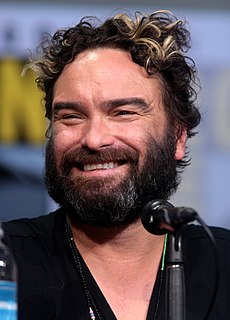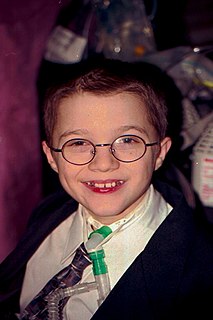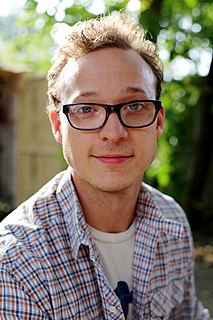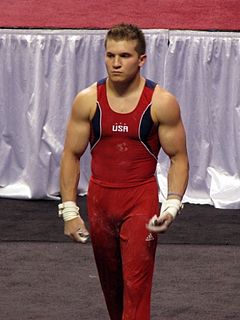A Quote by Johnny Galecki
As they say, there are two rules in improv: Never say no, and never ask why. When another actor asks 'Why?' or says no to something you're suggesting, then it's very clear that they're putting the onus on you, because they're not comfortable with it themselves.
Related Quotes
You've never had a hamburger before?" asks Christine, her eyes wide. "No," I say. "Is that what it's called?" "Stiffs eat plain food," Four says, nodding at Christina. "Why?" she asks. I shrug. "Extravagance is considered self-indulgent and unnecessary." She smirks. "No wonder you left." "Yeah," I say,rolling my eyes. "It was just because of the food." The corner of Four's mouth twitches.
The list of things about which we strictly have to be agnostic doesn't stop at tooth fairies and celestial teapots. It is infinite. If you want to believe in a particular one of them - teapots, unicorns, or tooth fairies, Thor or Yahweh - the onus is on you to say why you believe in it. The onus is not on the rest of us to say why we do not. We who are atheists are also a-fairyists, a-teapotists, and a-unicornists, but we don't have to bother saying so.
I'm a husband and a dad. Two thirds of my day is spent being that character. It's a huge part of my identity and why I pursue things I do. I'm interested in questions my son asks me, like, "Why do animals fight? Why do you have to leave us to go on the road?" Everything he asks gets me thinking. If I'm going to do this, sacrifice time with family and friends, sacrifice resources, I need to think carefully about what I going to say and how I'm going to say it.
You can't ask me to explain the lyrics because I won't do it...I always believed that I have something important to say and I said it. That's why I survived because I still believe I've got something to say. ... I don't like overdubs, never liked them. ... The music business doesn't interest me anymore...Don't the people you're around shape the music, is that what you're saying? Everything does. ... I'm not joking around when I've said occasionally, trying to learn how to play a D chord properly has been a very big thing for me.
There's mornings where I have to clear my mind and think, "OK, why am I doing this? Why am I putting myself through this kind of training every day?" I can literally see myself standing on top of a medal podium winning a gold medal next to my teammates, something I've never accomplished. It reminds me: That's why I do what I do. That's why I love it. Let's get in the gym and have a good workout.
You know, there are good reasons to learn how to read. Poetry isn't one of them. I mean, so what if two roads go two ways in a wood? So what? Who cares if it made all that big a difference? What difference? And why should I have to guess what the difference is? Isn't that what he's supposed to say? Why can't poets just say what they want to say and then shut up?
I wanted to know why people follow rules blindly, or why girls had to act a certain way and boys didn't. Why could boys ask girls out and girls not ask guys out? Why did girls have to shave their legs and guys didn't? Why did society, like, set everything up the way they did? My whole adolescence was full of unanswered whys. Because they never got answered, I just kept lighting fires everywhere - metaphorically speaking.
Very commonly I get queries. Somebody saw something of mine on YouTube and of course if there is a talk on YouTube, there aren't any footnotes - and they want to know why did you say this. Well if they bothered to look up something in print, they would've seen why I said that. If they ask for evidence, I just say well take a look and mention something they can read and that usually ends the conversation.



































